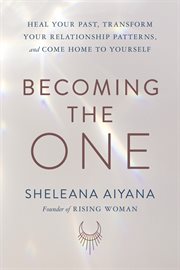Review by Booklist Review
It gives nothing away to acknowledge that the famous photographer Rye Adler is presumed dead, though his body hasn't been found, since the book opens with that startling news as read in the paper by Julian Ladd, who had once been Adler's fellow student at the famous Brodsky Workshop, where they had been in love with the same young woman, Magda, a fellow student. Julian is obsessively jealous of Rye's genius but succeeds in marrying Magda when Rye marries Simone, a poet and translator, instead. Time passes, and Magda and Julian's son, Theo, worried about the deteriorating condition of the world, becomes a heroin addict, dropping out of college and living on the streets. The novel moves smoothly between the points of view of the five principal characters as it shifts between past and present. An ambitious, literary novel, The Vanishing Point is distinguished by its characterizations, its pervasive air of melancholy, and its beautiful style ("The sun steeps like tea in the copper dusk"). Not surprisingly, there is a great deal of thought-provoking attention given to the meaning and aesthetics of photography, and, like great photography, the novel is ultimately a work of memorable art.
From Booklist, Copyright (c) American Library Association. Used with permission.
Review by Publisher's Weekly Review
In this dark-toned mystery, Brundage (All Things Cease to Appear) develops an engrossing story about a love triangle involving three photographers. As the novel begins, famous photographer Rye Adler has presumably died, thought to have jumped off a bridge, though his body hasn't been recovered. His former art school roommate Julian Ladd attends the funeral and reflects on the days when the two were "nearly feral with ambition." Rye's photographs teemed with people, whereas Julian's urban landscapes were eerily empty: "It's not what's there that matters. It's about everything that's not." They both were drawn to their classmate Magda Pasternak, who had an affair with Rye before he achieved international success. Twenty years later, Magda, now a wedding photographer, contacts Rye to help find her missing son, and after he agrees, Rye goes missing. Meanwhile, Julian deals with divorce proceedings. The first half of the novel brilliantly dissects the competitive and erotic entanglements that mark the characters, and Brundage is particularly good at using photographic theory to describe how each sees the world. Some of the nuance diminishes in the second half, as the mystery about how everyone is connected comes into focus and the characters flatten out. Still, the portrait has enough depth to hold the reader's gaze. Agent: Linda Chester, the Linda Chester Literary Agency. (May)
(c) Copyright PWxyz, LLC. All rights reserved
Review by Library Journal Review
Decades ago, Julian Ladd lost out to roommate and fellow photography student Rye Adler, whose nude photograph of their classmate Magda helped launch a career that finally led to his distinguished work as a war photographer. Now attending Rye's funeral, Julian pieces together Rye's life and his own. From the author of the multi-starred All Things Cease To Appear.
(c) Copyright Library Journals LLC, a wholly owned subsidiary of Media Source, Inc. No redistribution permitted.
Review by Kirkus Book Review
The interwoven lives of artists, failed and successful. Rye Adler evokes the late celebrity photographer Peter Beard in many ways: He seems to move easily in the world, gifted and carefree, and everyone recognizes him as a genius behind the lens. Yet something is not right in the now middle-aged man's life, for when Brundage's latest novel opens, a headline blares, "Rye Adler, Photographer of the Rich and Infamous, Is Presumed Dead at 52." The focus shifts to Julian Ladd, classmate and roommate and rival, who early on realized that compared to Rye in most aspects, he was second-tier at most: "Editors would stare at his pictures, glumly, and say nothing." So it was that Julian went into advertising, taking with him the one treasure that Rye could not have--Magda, a strikingly beautiful fellow photography student--and building a life of wealth and conspicuous consumption, all Armani suits and "shiny, expensive loafers." Does it buy him happiness? Of course not. Rye is in turn married to a brittle, brilliant translator whose "favorite language is silence," and each day is a negotiation in frustration. Things soon change from miserable to catastrophic when, the story shifting into the near past, Rye and Magda meet by chance--or is it?--and revelations begin to spill out. Brundage's characters are convincing, if mostly of the sort you'd meet in the Hamptons or at tony Chelsea galleries; at its best and most emotionally fraught moments, her novel could be bookended by Christopher Bollen's Orient and André Aciman's Eight White Nights. The resolution, however, seems a bit pat, as does the complication that sends Rye's life into free fall. One thing's for sure, though: Readers will root for him over the willfully unfulfilled Julian, whose life consists of omitting "essential clues" and leaving it to others to "draw their own conclusions, which were almost always more complex and intriguing than any he'd intended." An elevated soap opera but a well-written and affecting one. Copyright (c) Kirkus Reviews, used with permission.
Copyright (c) Kirkus Reviews, used with permission.

